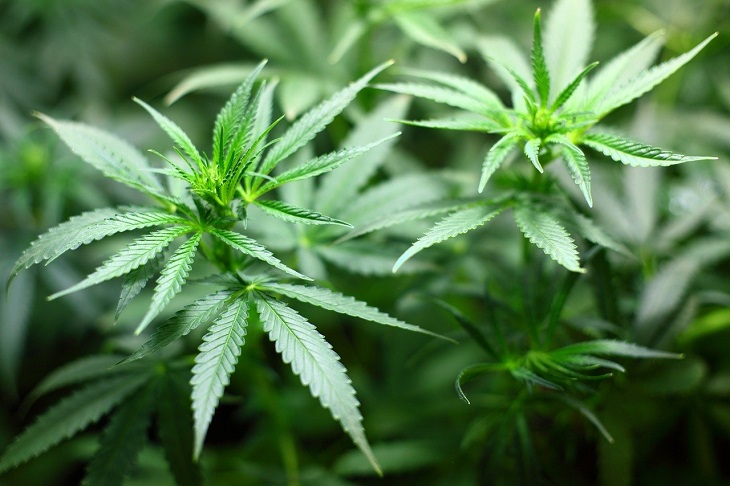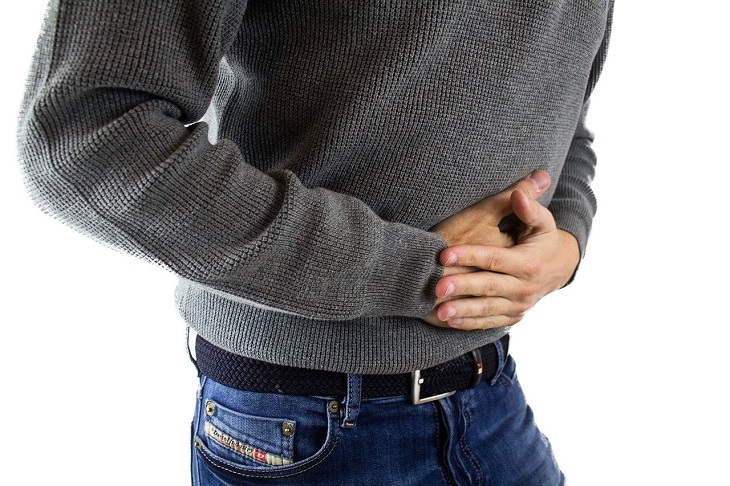What is THC? How does THC work? Is THC the same as CBD? Is THC effective at treating pain? Is THC the same as MMJ? These are just some of the questions that people have about THC and how it can benefit them.
There is quite a lot of confusion in the general public about what exactly THC is, as well as how it relates to medical marijuana and the more well-known compound CBD. In this article, we will discuss THC, what it is, how it works, its benefits and risks, and how it can help to treat various medical conditions and their symptoms.

Image by 7raysmarketing on Pixabay: THC is found in the cannabis plant.
What Is THC?
THC stands for tetrahydrocannabinol. It is one of the active compounds found in medical marijuana. THC is responsible for most of marijuana’s psychoactive effects. Different strains of medical marijuana contain different levels of THC. The amount of THC present in an MMJ strain will have a profound impact on how powerful the strain is and on the type of psychological effects it induces.
Is THC The Same As CBD?
THC and CBD are both compounds found in medical marijuana. They are the two most active compounds found in the cannabis plant and the two biggest contributors to the physical and psychological effects of MMJ. THC and CBD are not the same thing, and they have different effects.
THC and CBD both interact with the body’s endocannabinoid system, but they induce very different physiological and psychological states. While CBD mainly affects the body and creates a physically relaxed feeling, THC affects the mind and induces the psychoactive effects associated with marijuana.
How Does THC Work?
THC attaches to cannabinoid receptors in the brain. When THC binds to these receptors, it activates them, and this impacts memory, thought, emotion, concentration, and coordination. THC can stimulate feelings of pleasure and euphoria, bring on vivid hallucinations, and encourage novel mental associations. It also distorts sensory and temporal perceptions.
Is THC Effective At Treating Pain?
THC is very effective at treating various kinds of pain. It does this primarily by activating cannabinoid receptors in the brain and throughout the nervous system, which has the effect of lowering pain.
The other way THC reduces pain is by stimulating a psychoactive response in the brain. The euphoria, pleasure, distorted sensory and temporal perceptions, and hallucinogenic effects of THC often stop the brain from focusing on pain, greatly reducing the patient’s awareness and experience of pain.

Image by Derneuemann on Pixabay: THC is effective at treating pain.
How To Consume THC
There are several different ways to consume THC. The most common way is to smoke it in a marijuana joint or pipe. The downside of this method of ingestion is that it is associated with various health risks caused by smoking.
Other, healthier ways to consume THC include vaping; eating, in the form of marijuana-infused candies, cakes, or meals; and drinking, in the form of marijuana-infused teas, juices, and soft drinks.
What Strength Of THC Is Considered An Average Dose?
Different strains of medical marijuana contain different amounts of THC. Also, the method of ingestion will affect the amount of THC released into the system. Raw cannabis contains very little active THC, as the compound only becomes effective once it has been heated, which results in the activation of the compound – a process known as decarboxylation.
When smoked or vaped, THC enters the bloodstream quite rapidly, and the effects are felt almost instantaneously. When eaten, THC takes a lot longer to take effect, as it is processed by the liver first. This can mean that a person must wait between 30 minutes and two hours after they have eaten MMJ-infused foods for the effects of THC to take hold.
The average recommended dose of THC from edibles for a beginner or low-tolerance patient is 5–10 milligrams.
Can THC Be Dangerous?
Like any chemical compound, THC can be dangerous if abused or consumed in too large quantities. Some of the possible side effects of consuming THC include anxiety, increased heart rate, increased appetite, dry mouth, memory loss, inability to sleep or increased drowsiness, exacerbated schizophrenic symptoms, red and watering eyes, loss of coordination, and slower reaction times.
While using THC in moderate doses is usually safe and has many health benefits, it is certainly not advisable to operate machinery or to drive a vehicle while under the influence of THC.
How To Get A Medical Marijuana Card
If you have not yet gotten an MMJ card, the easiest way to get one is to apply online at MMJRecs. MMJRecs will set up an online consultation between you and a medical marijuana doctor in your locality who can examine you and write a medical marijuana recommendation letter. The process couldn’t be easier!
